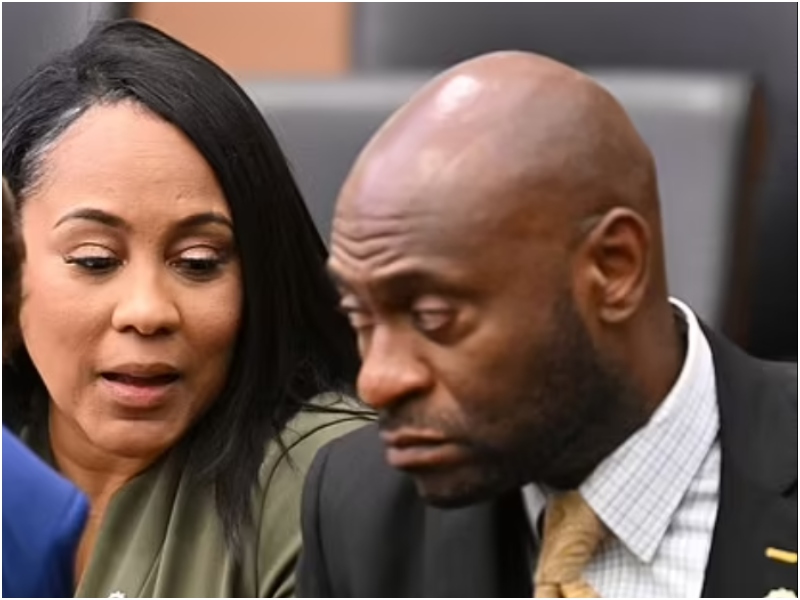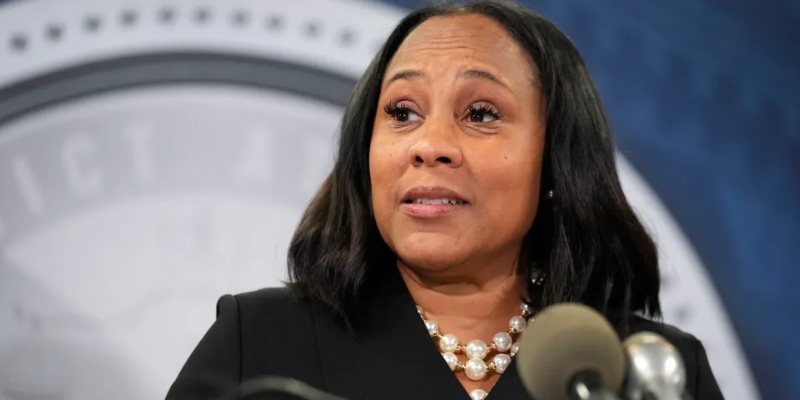The most consequential state criminal case ever brought against a former U.S. president has narrowly avoided collapse.
With the clock about to run out on a judge’s deadline, Peter J. Skandalakis, head of the Prosecuting Attorneys Council of Georgia, has appointed himself as the new prosecutor in the high-stakes election interference case involving Donald Trump and 14 remaining defendants.
Judge Scott McAfee had ordered Skandalakis to secure a conflict-free prosecutor by Friday. If he failed, the case would have been dismissed — a stunning end to a prosecution that once seemed poised to be the most sweeping criminal reckoning for efforts to overturn the 2020 election.
Instead, Skandalakis stepped into the vacuum no one else would fill.

No One Wanted the Case
Skandalakis acknowledged that before taking the job, he contacted multiple prosecutors across Georgia. All declined.
Rather than tell the court the search had failed, he wrote, he made the “careful and deliberate” choice to take on the case personally.
By the time he made the announcement, Skandalakis had already received 101 boxes of evidence and an 8-terabyte hard drive containing interviews, documents, and investigative files compiled by former Fulton County DA Fani Willis — whose office originally brought the charges.
A Prosecution Tarnished by Scandal
Willis, who charged Trump and 18 others under Georgia’s RICO statute, was removed earlier this year following revelations of a romantic relationship with special prosecutor Nathan Wade.
The relationship — and the vacations, payments, and blurred professional lines that came with it — led a Georgia appellate court to rule that Willis created an “appearance of impropriety.” The state’s highest court later refused to intervene.
Her removal left the case in procedural free fall, with defendants eager to argue it should simply be tossed.
What Happens Now?
Skandalakis, a veteran prosecutor known for his low profile and bipartisan credibility, now holds enormous discretion. His options include:
- Proceeding with Willis’s broad RICO case
- Narrowing the set of charges
- Severing Trump from the case until he leaves office
- Or dropping the case entirely
He has said he needs more time to review the evidence before deciding on strategy. Judge McAfee has scheduled a status conference for December 1, where the public may get the first hints of his direction.
A Complicated Path for Charging a Sitting President
Legal analysts say prosecuting Trump himself remains unlikely as long as he is president — and the timeline is not in Skandalakis’s favor.
“Given this is a temporary appointment, I don’t see Skandalakis waiting until 2029 to try Donald Trump,” said Georgia State University law professor Anthony Michael Kreis. “The charges against Trump may never reach a courtroom.”
But the other defendants — including prominent Georgia Republicans involved in the “alternate electors” plan — may still face trial.
Support From Some Defendants
One defendant, former state GOP chair David Shafer, expressed relief. In a statement, his attorney called Skandalakis “competent, experienced and objective.”
That support likely reflects a belief that Skandalakis will take a narrower, more conventional approach to the case than Willis’s ambitious RICO indictment.
A Case Living in a Changed Political Era
Since Trump returned to the White House in January:
- Federal special counsel Jack Smith dropped two major federal cases, citing legal limits on prosecuting a sitting president.
- Trump won a major victory when a New York appeals court tossed his nearly $500 million civil penalty.
- His hush-money felony conviction is still being appealed.
- A Supreme Court decision looms in the E. Jean Carroll defamation case.
- And Trump has issued pardons to several figures tied to efforts to overturn the 2020 election — though pardons cannot erase Georgia charges.
Commentary: A Case Too Loaded to Let Die
Skandalakis’s decision reflects a broader truth: dismissing the only remaining criminal case against a sitting president — by administrative technicality — would have carried enormous political and institutional consequences.
By taking the reins, he keeps the case alive while insulating Georgia’s judicial system from claims that it abandoned its responsibilities under political pressure.
But with Trump now president again, and with the prosecution’s credibility already battered by scandal, the path to trial may be narrow — and may not involve Trump at all.
What happens from here depends on one man’s review of a mountain of evidence and his willingness to take on the most politically radioactive prosecution in America.
More answers should emerge at the December 1 hearing.

